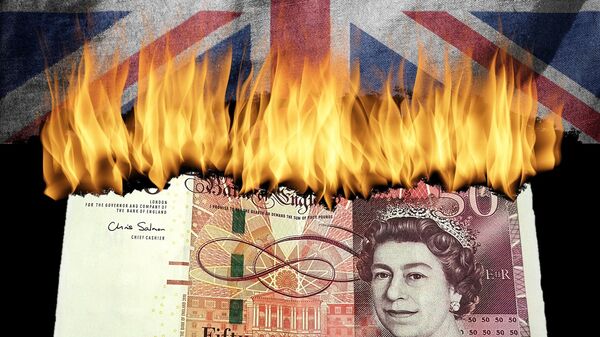The pound sterling plummeted to US $1.2863 on Wednesday, stoked by panic that Westminster will be unable to negotiate Brexit conditions with the European Commission. As of today, the pound also rests at 1.11 EUR and 143.15 JPY.
A bullish dollar has also complicated matters as it gained traction at the start of Q3. The USD reclaimed 38.2% of its bearish retraction during Q2 figures after a worrying Q2 pullback, DailyFX reported in July.
Tensions skyrocketed after UK international trade secretary Liam Fox told reporters there was was a "60-40" chance that Britain could leave the European Union without securing any trade deals.
Along with other ‘highly likely' governmental scenarios, Fox mentioned in a Times interview Sunday that odds of a post-Brexit trade agreement with Brussels were lowering by the day. "I have never thought it was much more than 50-50, certainly not much more than 60-40", he said.
He also expressed that the EU was at a major "crossroads" and that the bloc needed to decide if it was concerned about protecting jobs and trade, or simply "the purity of the EU's ideology."
"They are concerned about no deal," he mentioned. "I told them we have made an offer to the EU which we believe is generous and some in the UK believe is over-generous, but is something we think is workable and deals with the EU's reservations. It's now up to the EU."
Private investors have been driving the pound's tumble, as many hedge fund managers have placed their bets against the British currency in order to protect their profits.
"A lot of companies can't wait for the (Brexit) negotiations outcome in October, so of course are trying to hedge against a drop in the pound," Christophe Barraud of French brokerage firm Market Securities commented.
"What we are seeing is broad sterling weakness, a very aggressive weakening trend," Commonwealth Bank of Australia strategist Peter Kinsella also noted as quoted by Reuters.
The Bank of England announced Aug. 2nd that it would enact 0.75% bank rates, helping to boost the pound's value. Rates have remained close to 0.5% since March 9, 2009. New rate figures will be released on Sept. 13.
Find out why we have raised interest rates to 0.75%. Our visual summary tells you why in a nutshell: https://t.co/ChaGwjQvAf #InflationReport pic.twitter.com/LCP70jzC95
— Bank of England (@bankofengland) August 2, 2018
However, all is not doom and gloom for the British economy. While a weaker pound lowers standards of living for British citizens and investors, it has driven up exports to record highs. UK exports topped £620.2 billion in the first three months of 2018.
GOV.UK reported that, "[goods] exports were up 10%, driven by a demand for manufactured goods, while services exports rose 4.2% due to strong global interest in the UK's prestigious financial and travel services. Non-EU countries remain the main destination for UK services (£167.4 billion), making up 60.4% of all services exports."
It continued that, "[the] figures also reveal the trade deficit continuing to narrow over the last year by £7.7 billion to £23.1 billion [and the] UK's current account deficit also narrowed to £80.3 billion, down by £12.2 billion from 12 months earlier. This is the narrowest deficit [per GDP] since 2012."
The Department of International Trade also reported 2,072 new jobs projects securing 75,968 new jobs across the UK, "amounting to nearly 1,500 new jobs per week across the country," it stated.
The final countdown will come in October, when UK Prime Minister Theresa May meets her European counterparts to hash out the remaining terms and conditions of Britain's withdrawal.
The UK government has been in turmoil since former UK foreign minister Boris Johnson and former Brexit Secretary David Davis resigned just hours after one another. The pair declared PM May's Brexit stance to be insubstantial following a July 6 Chequers statement.
May replaced Davis with former Minister of State for Housing Dominic Raab, a strong supporter of May's Brexit agenda, and Johnson with former Secretary of State for Health Jeremy Hunt.
"We are truly headed for the status of a colony — and many will struggle to see the economic or political advantage of that particular arrangement," Johnson said in his resignation letter.





